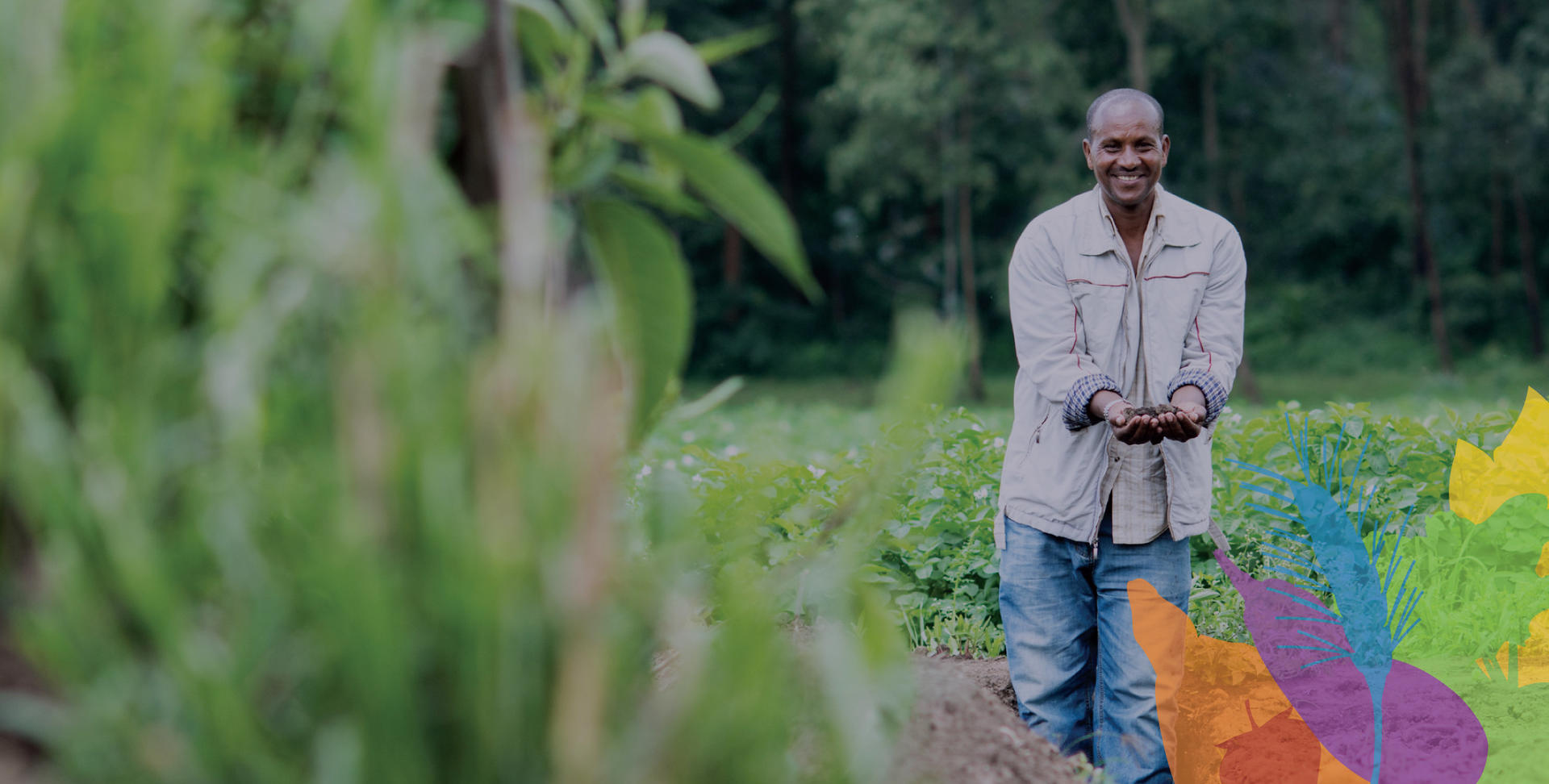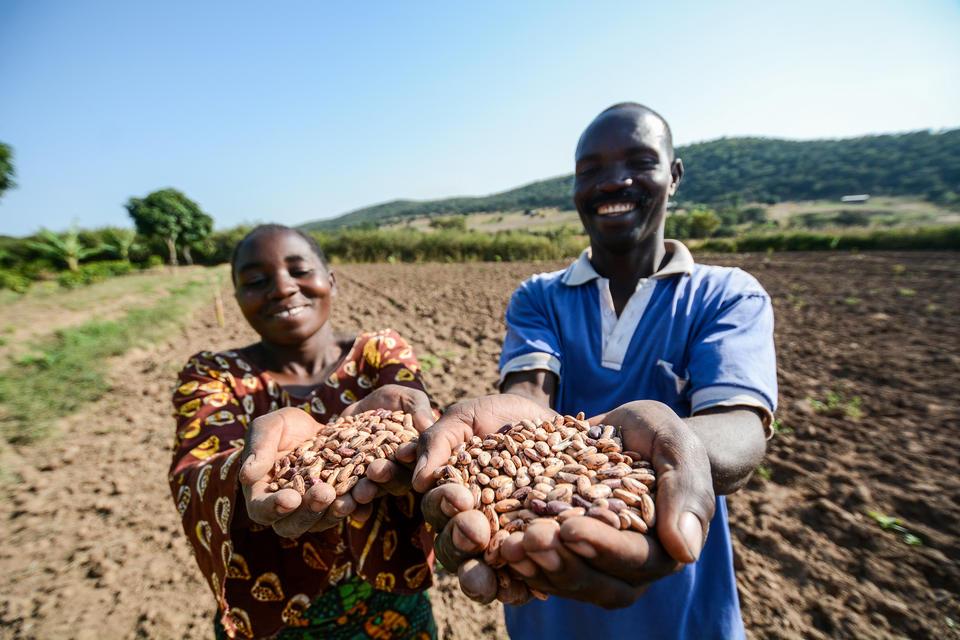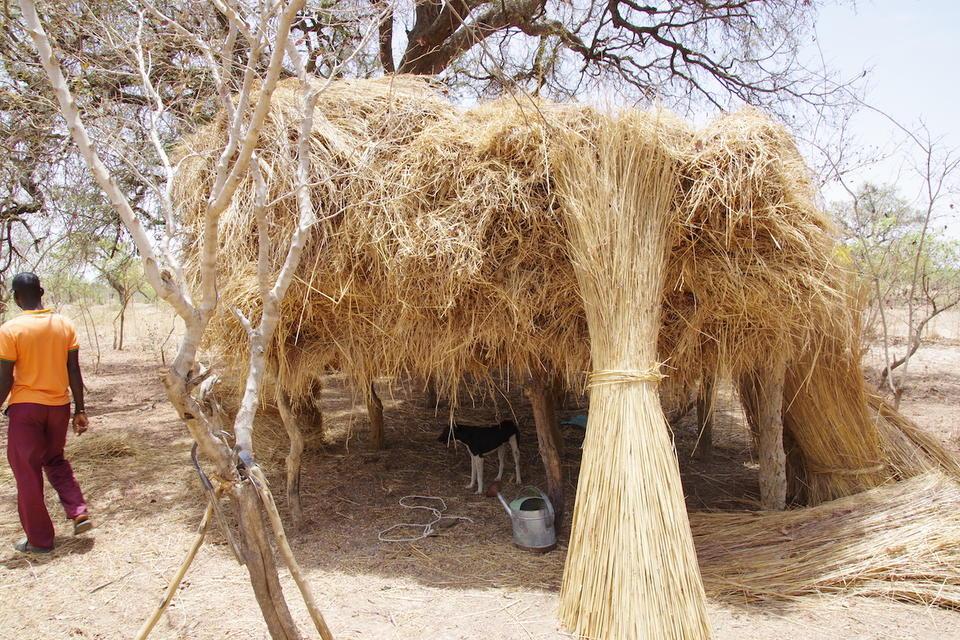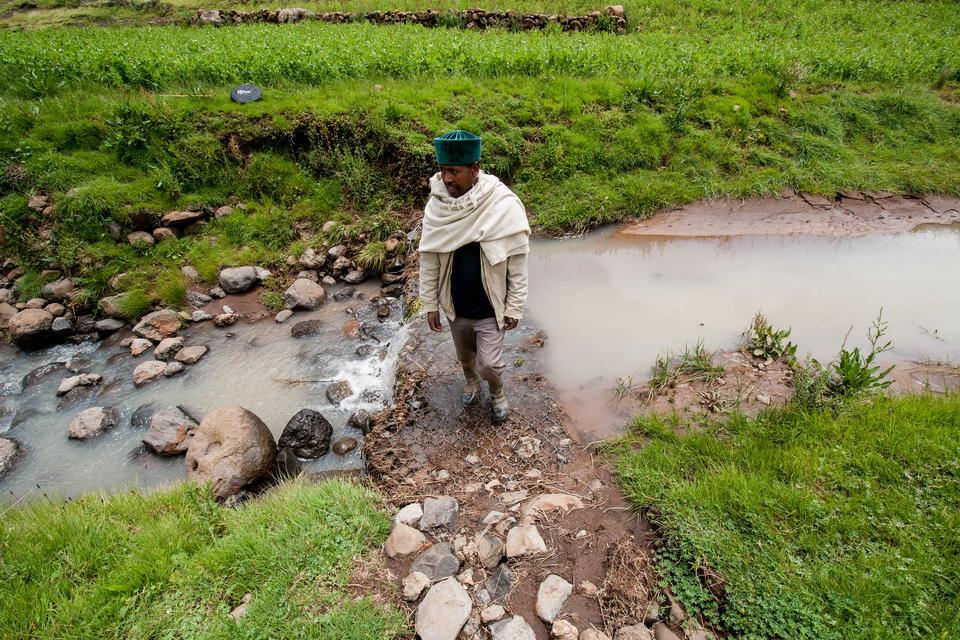2021 Annual Report Back to the field at full capacity in Africa

As restrictions lifted, our researchers and partners stepped up fieldwork to pre-pandemic levels. Expansion of Alliance research and continued scientific excellence were hallmarks of a successful year.
In spite of the pandemic, economic uncertainty and instability in various areas where we work in Africa in 2021, the Alliance in Africa had a year to be proud of. We continued to grow as an Alliance – particularly with our expansion of our West Africa team in Senegal – worked closely with partners and CGIAR Centers, and supported the One CGIAR transition.
Most importantly, however, we continued delivering tangible benefits for the smallholder farmers who are central to the work we do.
Launching the Bean Atlas
After several years of dedication, we launched the second version of the Bean Atlas, an indispensable, fully digital guide to one of the most important sources of plant protein on the continent. This publication by the Pan-Africa Bean Research Alliance (PABRA), which is coordinated by the Alliance, is the one-stop shop for bean value chain stakeholders in the 31 nations where PABRA works.
Reporting from the field
While malnutrition continues to be a major issue in many parts of the continent, a growing movement toward cultivating African Leafy Vegetables is helping improve diets, preserve on-farm biodiversity and increase incomes. Community seed banks, such as one we helped establish in Vihiga, Kenya, enable farmers to cultivate progressively more of these nutrient-rich crops, as illustrated in this inspiring field story. We are looking forward to further success stories, as African Leafy Vegetables recently received a boost with official recognition by UNESCO.
Another excellent story follows a day in the life of farmer Nelly Adhiambo, who, through cultivating improved grass varieties, has substantially boosted the productivity of her cows and her income. Nelly is just one of 1,000 farmers reached by the Grass to Cash project. This is a great example of how the Alliance’s forage researchers tapped the wealth of the Alliance’s genebank in Colombia and worked with public- and private-sector partners to improve rural livelihoods.
Reporting from Burkina Faso, our researchers emphasized how participatory approaches – working directly with farmers to plant trees and employ local landscaping techniques – will be essential during the new UN Decade of Ecosystem Restoration.
In Ethiopia, Alliance collaboration with farmers and the Ministry of Agriculture unearthed best approaches for sequestering carbon in soils, a valuable asset in fighting climate change. Of the three studies published around this research, the most recent showed that eight years of land-use interventions had increased soil carbon. Read more about this work below:
Publishing about agricultural best practices
Our scientists continued to publish in top-tier journals. A provocative report, authored with colleagues from the International Livestock Research Institute, provided evidence that a no-meat diet is not in Africa’s best interest, but that mitigating livestock emissions is a better strategy.
Elsewhere, we documented how COVID-19 led to agricultural innovation across Africa, with urban farmers increasing plot sizes and farmers turning to mobile apps to ensure market access in the face of major disruptions.
In northern Tanzania, declining soil fertility, changing weather patterns and use of improper field management practices have negatively contributed to low crop production. Nearly a decade into working on these issues, the Alliance and partners reported on how trainings and new techniques have benefitted over 8,000 farmers.
A publication called "Microbes Matter" delved into how farm-yard manure, reduced tillage, precise fertilizer application and other practices increase the microbial load and fertility of soils to improve agricultural output.



